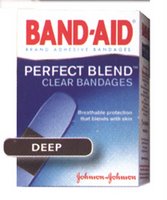
Anything to do with racism always catches my eye. This morning I noticed a video with the old-fashioned, stereotypical images of Black people on my New York Times email. Interesting video. Evidently, Black people are now beginning to collect memorabilia of the Jim Crow era in order to remember the past and to start the conversation about racism. Up until now, the main people with this kind of memorabilia were White people (I'm not sure why...maybe because it had been passed down and then kept as "antiques"...maybe Black people couldn't bear to remember the pain and suffering of their relatives...I don't know).
NY Times ArticleI like the idea of collecting it, though. I had never thought about it like that before. I am one of those White people who are repulsed by the idea of having those symbols in my home. I don't want to be associated with Jim Crow or lead anyone to think that I might be happy about our past. But after listening to this video and reading the article, wouldn't it be a great way to open up the conversation on racism--past and present!
I think it would be interesting to gather the signs, symbols, dolls, etc. from the Jim Crow era and display them, but also to gather items that are still displayed today...to point out how racism has continued (and still continues) over the years.
I can remember going home to Missouri a few years ago. I had taken some [Black] teenagers with me. As we visited an older lady's home, she pointed out a mammy doll of hers. I remember feeling embarrassment sweep over me that she would have it in her house, for one, but it also bothered me that she had no shame in pointing it out and talking about it like it she was proud to have it. Though I usually talk about that stuff with the teenagers afterward, I don't remember saying anything to them that day. I couldn't believe she had done that! I wondered how that made them feel. The lady was probably in her 70's or 80's. The doll was one she had as a child. That fact didn't make me any less uncomfortable...probably because I don't think she kept the doll to be a constant reminder of the ugliness of the past. But, still, I can write that off as her time period.
Moving into a more current example, however, I am reminded of my own childhood. Sometime after 4th grade (sometime in the 80's), I remember getting a doll from my aunt. It was a type of "rag doll"...made out of black material, complete with little braids sticking out of the top of her head. My aunt gave it to me for my birthday and called it my "nigger baby" or my "pickaninny doll." She thought it was the cutest thing and so did I. It wasn't until I was talking to a Black friend of mine in college that it hit me how horrible it was.
(Side note: It is important to note here that I did not grow up with any people of color. My first real interactions were in college. In fact, the first time I ever remember seeing a Black person was when I was in the 7th grade and we were staying in a hotel in Kansas City). As I started to proudly claim to my friend that I did own something other than White items, my jaw dropped when I started to tell him about my "ni. . ." I remember stopping mid-word and realizing how derogatory that word was.
Still today, when I drive through Arkansas to get to Missouri, I see confederate flags being sold in stores. I did not know the significance of a confederate flag until fairly recently--over the last 11 years. As I educate myself and the listen to conversations and feelings from people of color, the more I learn and begin to understand.
It would do us good to have conversation pieces that could open the race dialogue. For White people like me, it would be good for us to have the conversations and realize racism is not a thing of the past. For all of us, I think it's always important to know and understand our past...the good and the bad...so we can learn from it and recognize when we begin repeating the same mistakes.














